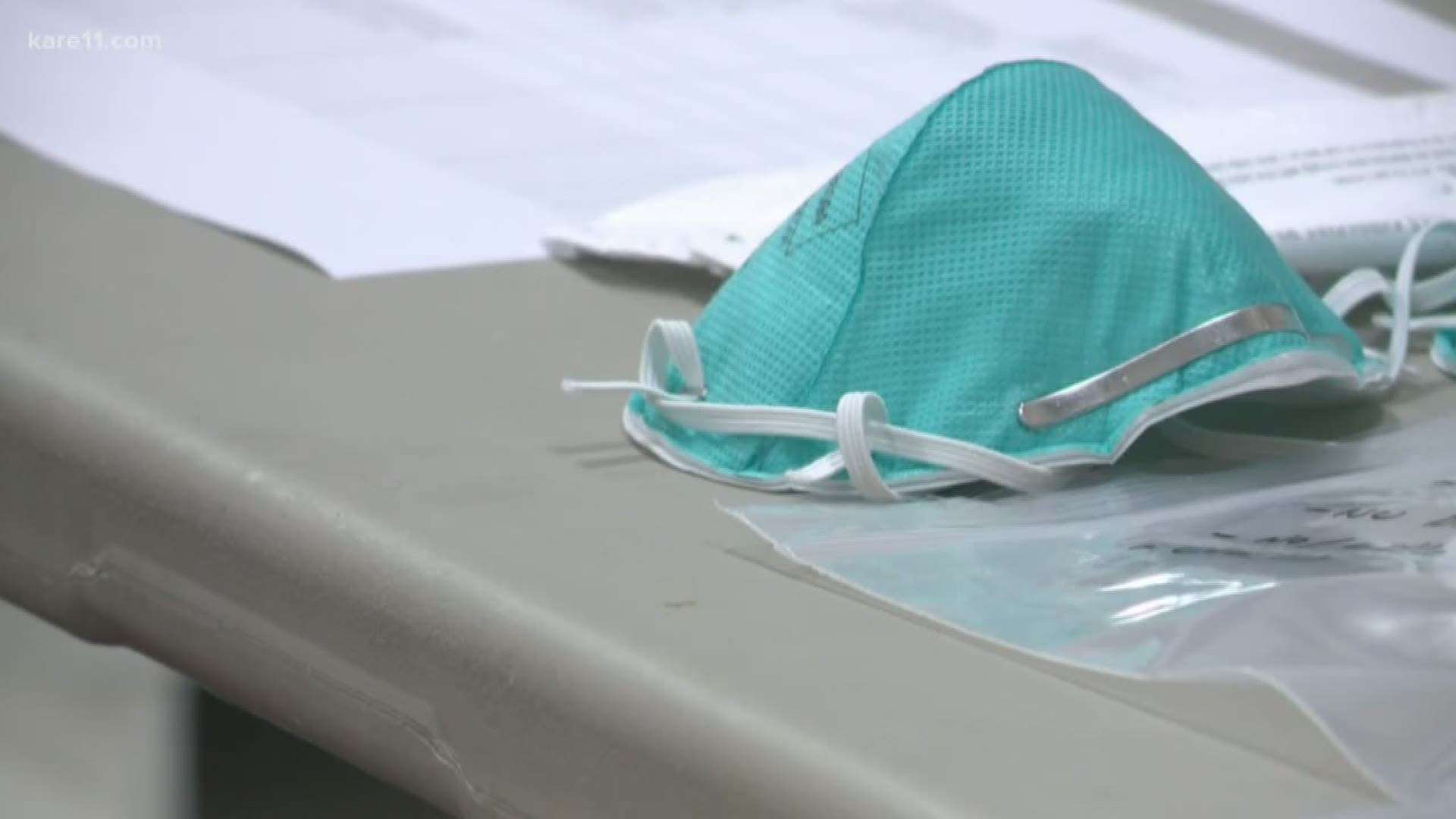Hennepin County social workers have been making face-to-face visits to families and transporting children without protective gear or sanitizers, putting them and their clients at risk for exposure to COVID-19, according to emails and interviews by KARE 11.
“It’s absolutely not acceptable,” said Grace Baltich, a Hennepin County social worker. “Often times these are very vulnerable people that we are needing to have contact with and we don’t want to be unknowingly spreading COVID-19 to people who are vulnerable.”
Baltich is president of the local union that represents social workers – including staff working in child protection, adult protection, financial case aide and case management assistance.
She gathered anecdotal experiences from frontline workers and sent them out in an email last week to union members.
The email focused mostly on child protection workers and said some of them “are transporting children in their own vehicles and making in-person house calls. They have been provided either NO or expired or inadequate sanitizer, wipes, gloves and no masks.”
A shortage of personal protection supplies is creating challenges for child protection workers across the state.
“Our frontline workers are being sent out into the field without protective gear – masks, gloves, sanitzer or wipes,” one worker wrote in the email, which was obtained by KARE 11. “This is an outrage.”
The statements from employees indicate at least one of Hennepin’s Child Protection investigators has already been diagnosed with the coronavirus.
Two workers said they had direct contact with clients they later learned had symptoms. One social worker said his daughter began experiencing symptoms a few days after he met with the client.
“I don’t want to put my family at risk,” the worker wrote.
Others said they had expired or inadequate protection. One worker wrote that cars used for transporting kids, “are also not being cleaned, to anyone’s knowledge.”
While the county is encouraging child protection workers to use social distancing, for many that’s not an option.
“We do not maintain social distancing when a client lives in a small apartment, hospital rooms (where likely people are sick and being treated),” a worker wrote. “Many of us have family who have underlining health conditions.”
Sara Crotteau, who works for the county’s Indian Child Welfare unit, said more safety equipment and sanitizer is needed, but understands that the county is struggling to get it.
“Do we have enough of those sorts of things? Absolutely not. But nobody does. Nurses and hospitals and doctors also don’t,” she said.
Assistant County Administrator Dan Rogan acknowledged that Hennepin, like all government agencies across the country, is working furiously to get more safety equipment. Within the last week, Hennepin ordered about $2 million in supplies, but “most has not come in yet,” he said.
In the meantime, he said the county was able to obtain 100 safety equipment kits late last week that include gloves, masks and hand sanitizer to give to child protection workers who have to go out on emergency calls.
For non-emergencies, social workers screen their clients on the phone or computer beforehand to try to ascertain if they have symptoms or have been exposed. If the social worker concludes there’s a risk, they’ll also get a mask for a visit. But if there are no symptoms or high risks, they won’t get a mask.
As for sanitizing wipes for car seats, Rogan said they don’t have those yet, but just issued a CDC-approved cleaning solution and paper towels.
He said the county continues to look for more, hoping to find enough to allow social workers to wear a mask during all client visits.
“We’re really trying to be as proactive as we can and trying to find solutions, recognizing that some of the normal supply channels are not able to give us what we need,” Rogan said.
Baltich said she understands that the county is struggling to get safety equipment, but due to the risk of being infected, the union has asked the county to stop all face-to-face child visits except in emergency situations until is protective gear and sanitizer is available.
Last week the county restricted adult protection visits to those “when there is no other way to meet a critical health and safety need of a vulnerable adult.”
Baltich wants at least something similar for child protection workers.
“We feel like it’s kind of a no-win situation. There’s danger all the way around,” Baltich said.
KARE 11’s coverage of the coronavirus is rooted in Facts, not Fear. Visit kare11.com/coronavirus for comprehensive coverage, find out what you need to know about the Midwest specifically, learn more about the symptoms, and see what companies in Minnesota are hiring. Have a question? Text it to us at 763-797-7215. And get the latest coronavirus updates sent right to your inbox every morning. Subscribe to the KARE 11 Sunrise newsletter here. Help local families in need: www.kare11.com/give11.
The state of Minnesota has set up a hotline for general questions about coronavirus at 651-201-3920 or 1-800-657-3903, available 7 a.m. to 7 p.m.

